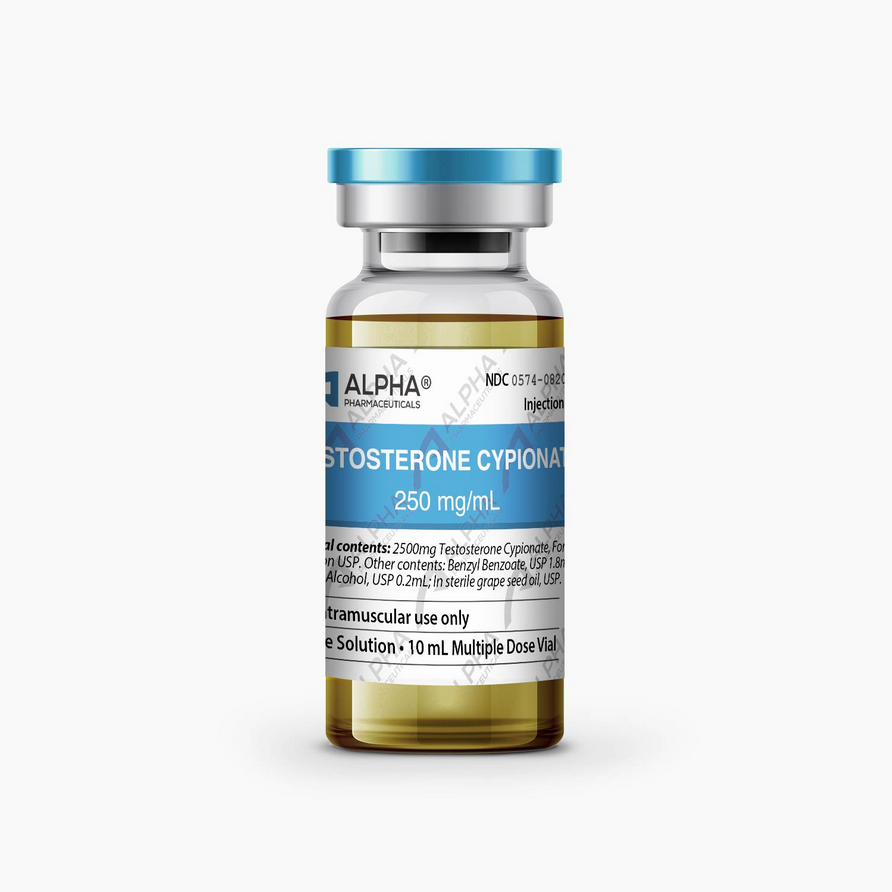$83.92 Original price was: $83.92.$80.92Current price is: $80.92.
Testosterone cypionate is a widely used and effective form of testosterone used for hormone replacement therapy and performance enhancement. While it offers benefits in terms of muscle growth, recovery, and overall well-being, users should be aware of the associated risks and side effects. Responsible use under medical supervision and adherence to legal and ethical considerations are crucial for anyone considering the use of testosterone cypionate or any other anabolic steroid.
Testosterone cypionate, often referred to as “test cyp,” is a synthetic version of the naturally occurring male sex hormone testosterone. It is a long-acting ester of testosterone and is widely used in both medical and non-medical settings, particularly in the realm of hormone replacement therapy (HRT) and performance enhancement.
Characteristics
- Chemical Structure: Testosterone cypionate is structurally identical to the testosterone produced naturally in the body. It is a synthetic derivative with a longer-acting cypionate ester attached to it.
- Ester Attachment: The cypionate ester attached to testosterone cypionate slows its release into the bloodstream. This results in a prolonged half-life of approximately 8-12 days, allowing for less frequent injections compared to shorter-acting testosterone esters like testosterone propionate.
Uses and Benefits
- Hormone Replacement Therapy (HRT): Testosterone cypionate is commonly prescribed in medical settings to treat hypogonadism (low testosterone levels) in males. It helps restore testosterone levels to normal range, improving symptoms such as fatigue, low libido, and decreased muscle mass.
- Muscle Growth: Like all forms of testosterone, testosterone cypionate promotes protein synthesis, leading to increased muscle mass and strength gains. It is effective in enhancing nitrogen retention and promoting muscle tissue growth.
- Performance Enhancement: Athletes and bodybuilders use testosterone cypionate to enhance athletic performance, including increased endurance, power, and quicker recovery between workouts.
Administration
Testosterone cypionate is typically administered via intramuscular injection into the gluteal muscle. Due to its longer-acting nature, injections are usually required less frequently compared to shorter-acting esters like testosterone propionate. Typically, injections are administered once every 7-14 days to maintain stable blood levels.
Side Effects
While testosterone cypionate offers significant benefits, it also carries potential side effects, including:
- Estrogenic Effects: Testosterone can convert to estrogen in the body, leading to side effects such as water retention, gynecomastia (breast tissue enlargement in males), and potential mood swings.
- Androgenic Effects: Testosterone cypionate can cause oily skin, acne, and accelerated hair loss in individuals predisposed to male pattern baldness.
- Cardiovascular Risks: Elevated testosterone levels may negatively impact cholesterol levels, potentially increasing the risk of cardiovascular disease.
- Suppression of Natural Testosterone Production: Like other forms of exogenous testosterone, testosterone cypionate can suppress the body’s natural testosterone production. Post-cycle therapy (PCT) is often used to help restore natural hormone levels after discontinuation.
Legality and Ethics
The use of testosterone cypionate, like other anabolic steroids, is regulated and controlled in many countries due to its potential for misuse and abuse. In sports, the use of testosterone cypionate is typically prohibited by anti-doping agencies and can result in sanctions and disqualification if detected during drug testing.
1 review for Test cypionate
There are no reviews yet.



Be the first to review “Test cypionate”